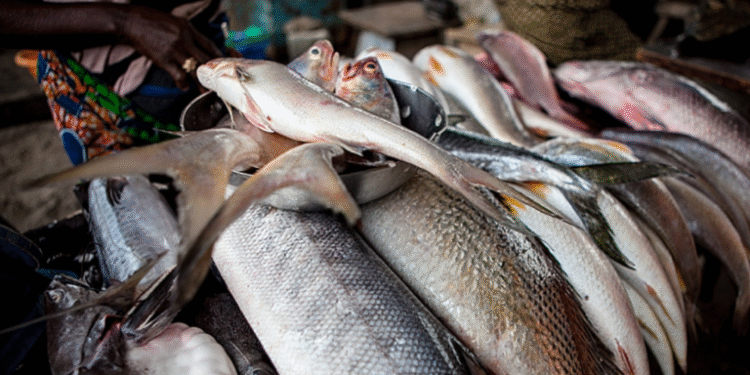The federal government has pledged to end Nigeria’s dependence on fish importation by boosting local production and empowering youth and women with start-up grants in the fisheries sector.
Adegboyega Oyetola, Minister of Marine and Blue Economy, disclosed this on Wednesday in Abuja during a consultative meeting with fisheries cooperative groups.
He outlined the government’s vision to transform aquaculture into a pillar of food security, employment, and export competitiveness.
According to him, Nigeria must chart a new path toward self-sufficiency in fish production.
“The federal government is fully committed to supporting the fisheries and aquaculture subsector through policy, technical support, and financial inclusion.
“We will scale up domestic fish production, reduce dependency on imports, and reposition the sector for sustainable growth,” he said.
Mr Oyetola stressed that empowering youth and increasing their participation in aquaculture was crucial for food production and unemployment reduction.
The minister assured stakeholders that the ministry was actively engaging local and international partners to address industry challenges.
Mr Oyetola also revealed that talks were ongoing with the World Bank to secure financial support for fish farmers and that the ministry would work with the Nigerian Agricultural Insurance Corporation (NAIC) to provide affordable insurance coverage.
“We are also in talks with the Federal Ministry of Water Resources to replicate the successful aquaculture model at the Oyan Dam across other regions,” he added.
Olufemi Oloruntola, the ministry’s permanent secretary, reiterated its readiness to form strong partnerships with cooperative societies to ensure inclusive sectoral growth.
Earlier, Mashi Sani, president of the Fisheries Cooperative Federation of Nigeria (FCFN), proposed a Sustainable Livelihoods and Fish Food Security Initiative (SLESI) to enhance livelihoods across the fisheries value chain.
Mr Sani proposed N75 billion, three-year budget to create one million sustainable jobs, reduce post-harvest losses by 50 per cent, and boost national fish production by 35 per cent.
He urged the Federal Ministry of Marine and Blue Economy to adopt and fund the SLESI in collaboration with the FCFN to secure sustainable livelihoods, ensure national food security, and develop Nigeria’s blue economy.
Mr Sani also called on the government to address persistent issues including poor transportation, weak market linkages, and inadequate technical support systems.
(NAN)











